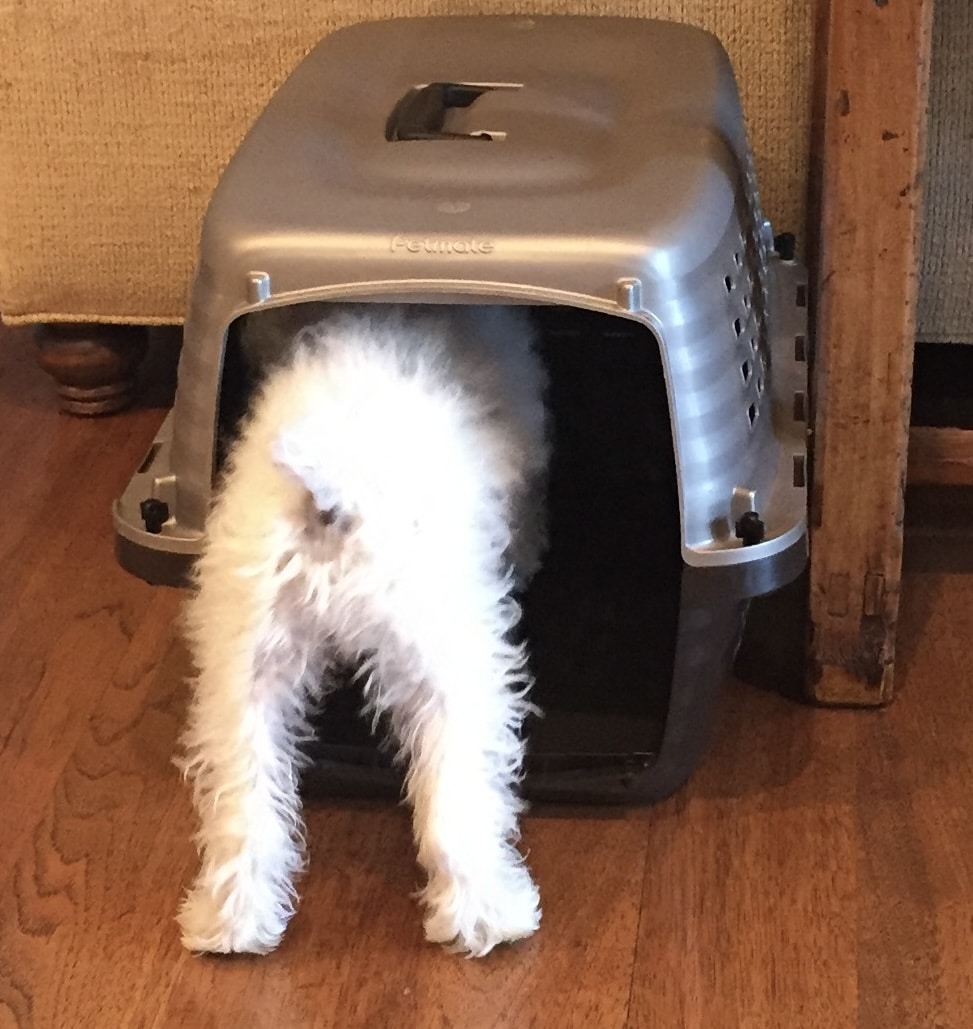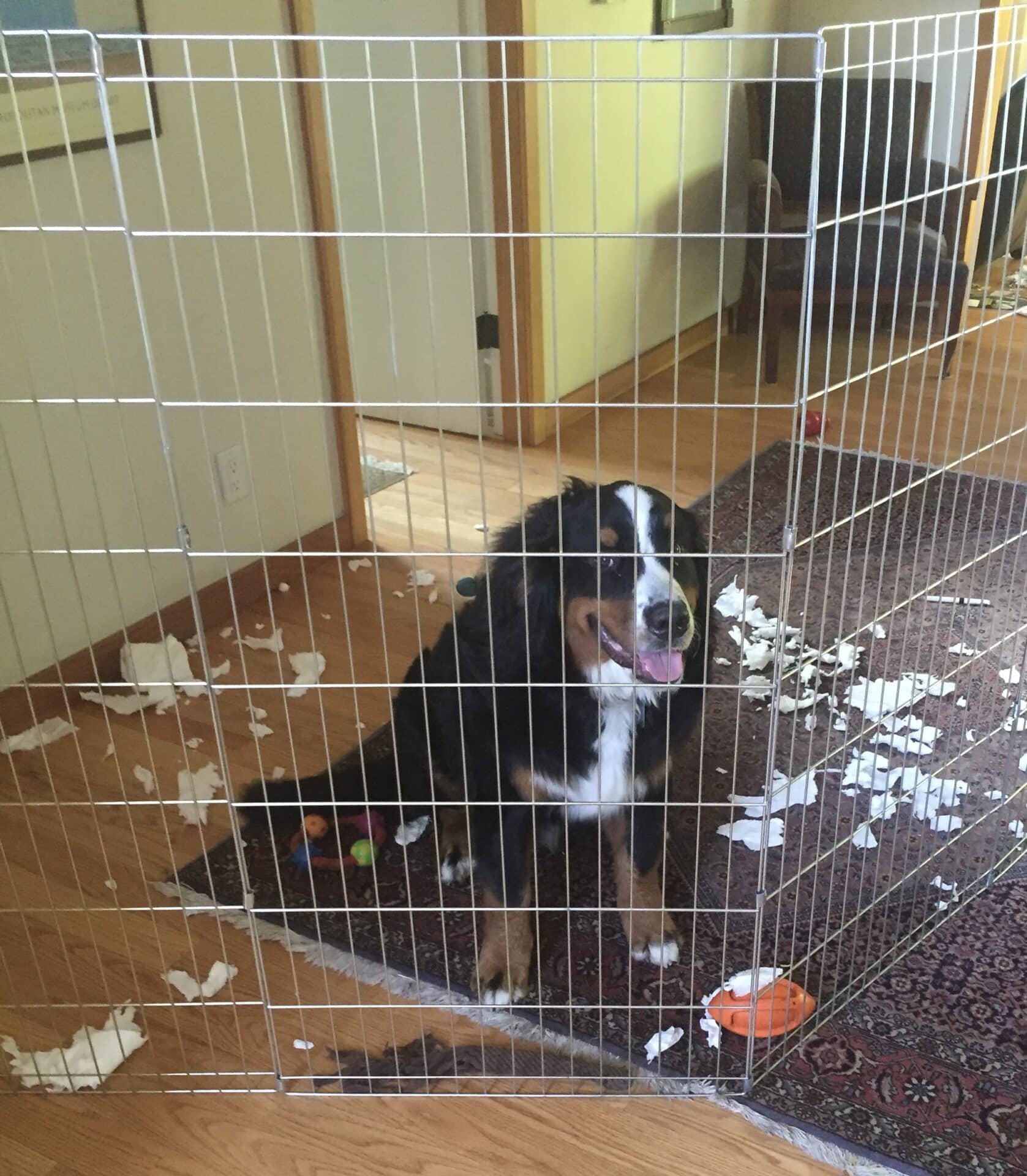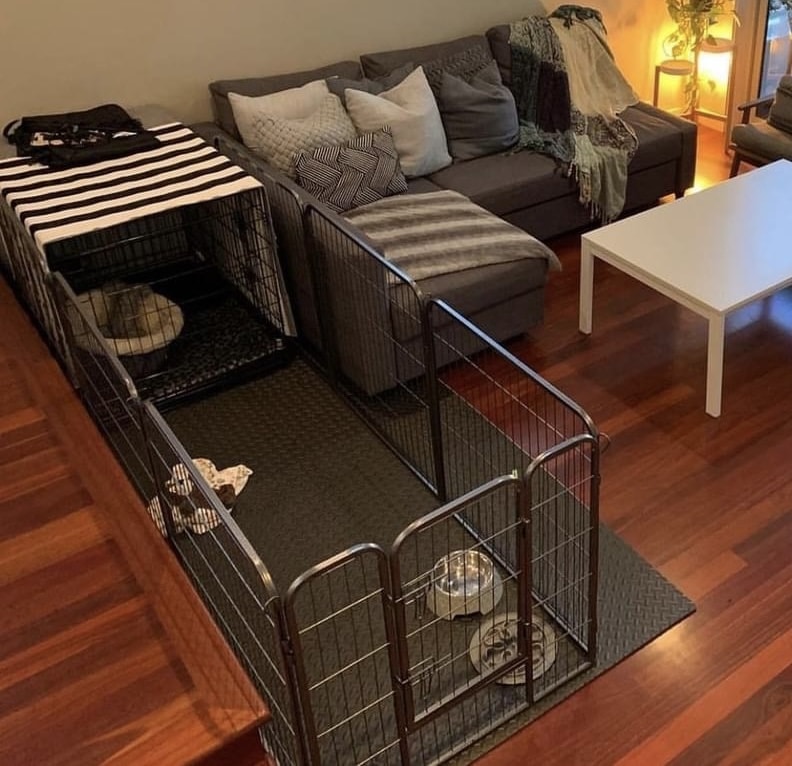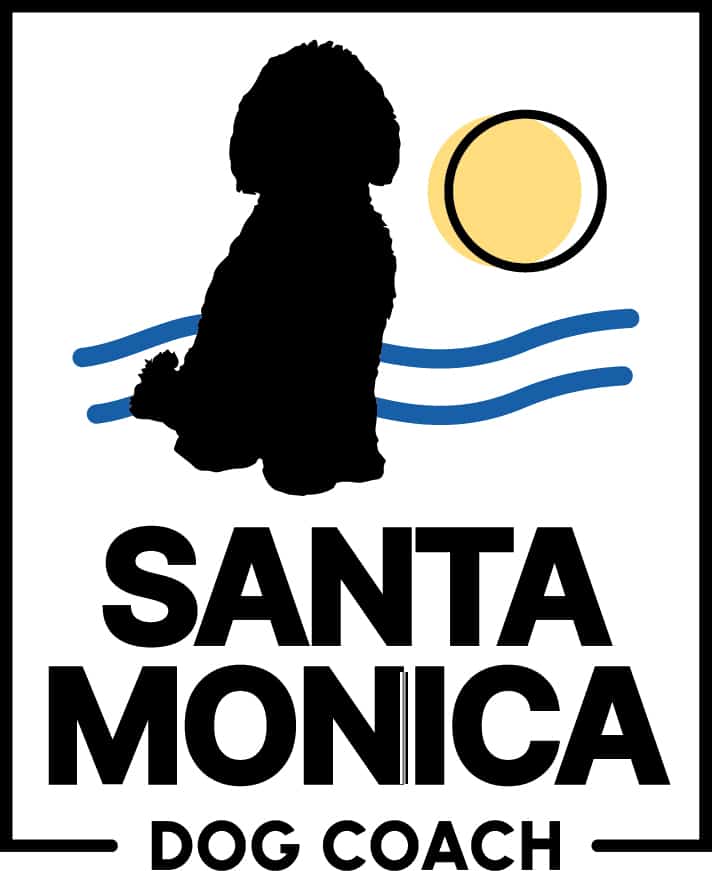The single most important behavior for puppies learning to enjoy their crate is the ability to walk into the crate on their own steam.

When we pick a puppy up and place them in the crate, we eliminate their ability to choose to go inside. While putting a puppy in a crate may be faster or more convenient for the human, more often than not doing this creates resistance around the crate for the puppy. Resistance manifests in several ways, with barking, whining and pawing at the gate being the most common. These are signs of discomfort and potentially distress.
Distressed puppies don’t learn to “get over” their fear of confinement or being alone by letting them “cry it out.” In fact, it takes far more time and effort to change their mind once they have a negative association with being in there than it does to conditioning them, in the beginning.

The best way to avoid having to spend weeks or months changing a puppy’s displeasure with being in a crate is to take a few days before you ever close them inside to show them the crate can be a place of safety and comfort.
Teaching puppies to enter a crate on their own paws is as easy as tossing high value treats inside and letting your puppy walk in and out. I recommend practicing this at least a dozen times before closing the crate door.
A crate inside the puppy pen is the easiest conditioning method of all because it allows your puppy to choose to explore the crate on their own schedule.

More Crate Conditioning Tips:
- When your puppy isn’t present, place high-value treats and tasty chews inside for them to find on their own.
- Feed meals in the crate, preferably via enrichment. Puppies and dogs generally LOVE enrichment games and activities, especially those that utilize their instinctual behaviors.
- Labs and other retrievers find scent-based enrichment like scatter feeding and snuffle mats super rewarding.
- Terriers especially love to chase food-dispensing balls and “shred” the stuffing in Holee Roller balls, magic boxes and paper towel rolls.
The article, below, has details about different types of enrichment and how to use them to feed puppies.
https://santamonicadogcoach.com/easy-daily-enrichment-for-puppies-and-dogs/
Dee Green has been a professional dog trainer and canine behavior consultant for more than 20 years. She specializes in puppies up to 18 months, and fearful, anxious and reactive dogs of all ages.
©️2024 Dee Green
